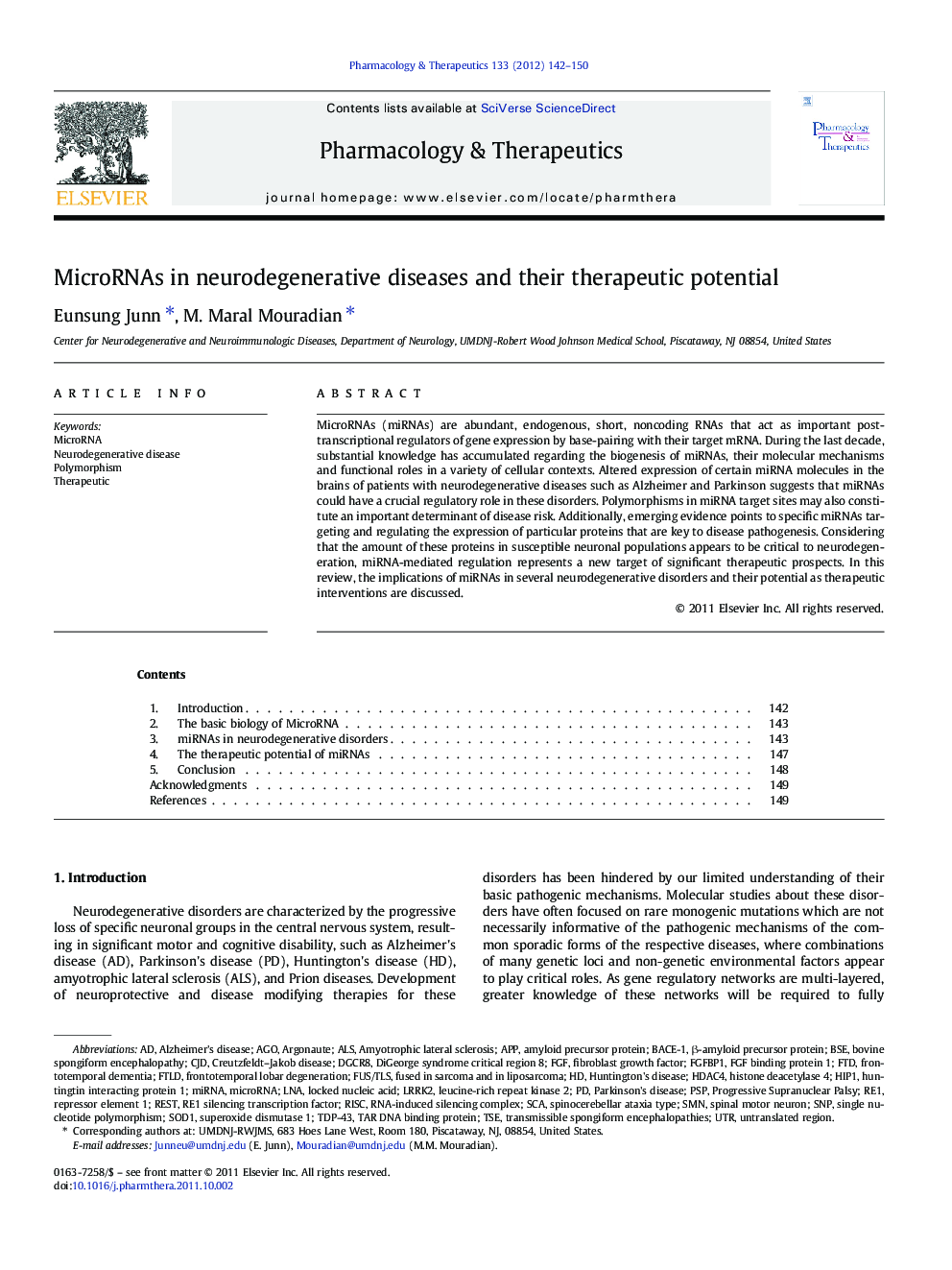| Article ID | Journal | Published Year | Pages | File Type |
|---|---|---|---|---|
| 2563285 | Pharmacology & Therapeutics | 2012 | 9 Pages |
MicroRNAs (miRNAs) are abundant, endogenous, short, noncoding RNAs that act as important post-transcriptional regulators of gene expression by base-pairing with their target mRNA. During the last decade, substantial knowledge has accumulated regarding the biogenesis of miRNAs, their molecular mechanisms and functional roles in a variety of cellular contexts. Altered expression of certain miRNA molecules in the brains of patients with neurodegenerative diseases such as Alzheimer and Parkinson suggests that miRNAs could have a crucial regulatory role in these disorders. Polymorphisms in miRNA target sites may also constitute an important determinant of disease risk. Additionally, emerging evidence points to specific miRNAs targeting and regulating the expression of particular proteins that are key to disease pathogenesis. Considering that the amount of these proteins in susceptible neuronal populations appears to be critical to neurodegeneration, miRNA-mediated regulation represents a new target of significant therapeutic prospects. In this review, the implications of miRNAs in several neurodegenerative disorders and their potential as therapeutic interventions are discussed.
